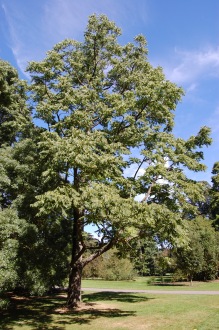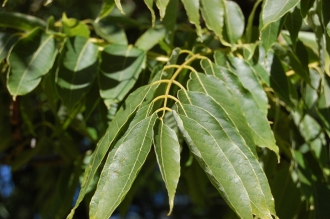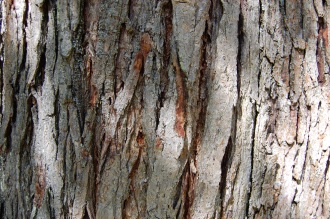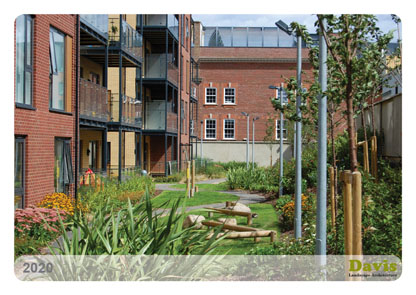Position: Full sun
Flowering period: Summer
Soil: Moist, well drained
Eventual Height: 20m
Eventual Spread: 12m
Hardiness: 5a, 5b, 6a, 6b, 7a, 7b, 8a, 8b, 9a, 9b
Family: Meliaceae
Toona sinensis is a fast growing, medium sized, deciduous tree. Its mid green leaves are pinnate with up to 24 leaflets, up to 60cm long and 30cm broad. Its leaflets are lanceolate with mildly serrate margins, up to 15cm long and 4cm broad. Its leaves appear red/ pink in spring and turn a golden colour in autumn before they fall. Its trunk may achieve a diameter of up to 70cm. Its brown bark is smooth on young trees, becoming scaly and developing fissures as it matures. Its white/ pink flowers are up to 5mm across and appear in panicles which are up to 50cm long. Its fruit is a capsule which are up to 35mm long.
Toona sinensis, commonly known as Chinese Mahogany, Chinese Toon or Red Toon, is native to south eat Asia. Toona sinensis is synonymous with Cedrela sinensis. The roots, bark and fruit of this tree are used in traditional Chinese medicine. Its young leaves are used as a vegetable in China.
The etymological root of the binomial name Toona is unclear to us, reader feedback would be welcome. Sinensis is derived from the Latin meaning ‘from China’.
The landscape architect may find Toona sinensis useful as a specimen tree with attractive spring and autumn leaf colour.
Ecologically, Toona sinensis is attractive to pollinating insects.
Toona sinensis prefers moist, fertile, well-drained soils. It tolerates most pH of soil. It will not tolerate wet soils.
Toona sinensis requires little maintenance.






